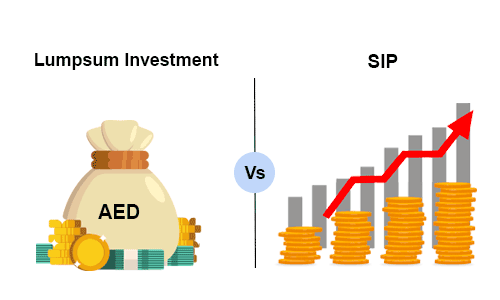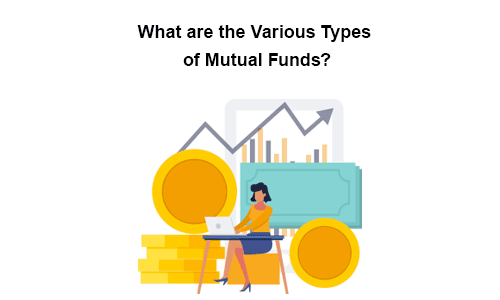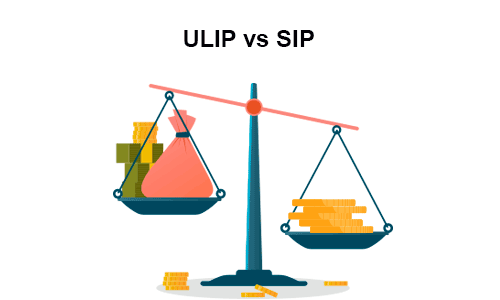Know the Best Time to Start Investing in Mutual Funds
Mutual funds are expertly handled investments that combine the money of a number of institutional and individual participants who have similar investment goals. This combined investment is used to buy capital goods and financial instruments, which can grow their wealth over time. Understanding how to invest in mutual funds and when to start investing in mutual funds is crucial before starting any mutual fund investment.
This article provides information on when to start investing in mutual funds and how to do so.
Table of Content
What are Mutual Funds?
Before diving into how to start investing in mutual funds, it is necessary to understand what mutual funds are. Mutual funds aggregate money from investors with mutual objectives to buy stocks, bonds, and other assets. The primary goal of a mutual fund is to build a portfolio that is more diversified than what a typical investor could do on their own. Skilled fund managers purchase securities on your behalf through mutual funds.
Shares of a corporation whose business it is to purchase shares of other companies are owned by mutual fund investors. The "mutual" in mutual funds refers to the fact that although investors in mutual funds indirectly hold the stock in the firms the fund purchases, they do partake equally in the gains or losses of the fund's overall holdings.
When you purchase a mutual fund, you can make increase its value in three ways -
- Dividend Payments - A fund pays out a share of dividends or interest it earns from the assets in its holdings to its investors in a proportionate amount. When purchasing mutual fund shares, you get the option of either having your payouts reinvested in the fund or receiving them directly.
- Capital Gains - A fund makes a capital gain when it sells a security whose price has increased. The majority of funds annually pay out any net capital returns to investors.
- Net Asset Value (NAV) - After the market closes and all underlying assets have been evaluated, the purchases of mutual fund shares are final. The net asset value (NAV) of a mutual fund is the cost per share. The cost to buy shares of the fund rises in line with the fund's worth. This is comparable to an increase in stock price.
When to Start Investing in Mutual Funds?
There is no rule requiring investors in mutual funds to be employees. Mutual funds are open to investors of all ages. There is no specified ideal time to invest in mutual funds, as mutual fund investments can be made whenever and however investors want.
However, it is always preferable to purchase the funds at a reduced Net Asset Value (NAV) than at a greater cost. This can maximise your returns in addition to promoting more wealth accumulation.
The three situations in which you can start investing in mutual funds are as follows –
- When the market is not performing well
- Bonds are yielding high profits
- There is development in the real estate sector
Any or all of the aforementioned scenarios are ideal, but in reality, they seldom materialise together. With less financial experience, you may also be unsure whether the present situation fits any of the aforementioned scenarios – such a horizon is virtually impossible to describe. As a result, you should not hesitate and rather start investing in mutual funds as soon as you feel the need to.
Factors that Determine to Start Investing in Mutual Funds
There is no ideal time to start investing in mutual funds. It is crucial to consider the following factors when investing in mutual funds -
- Your Risk Appetite – The size and length of an investor's investment are determined by their risk tolerance. While FDs have practically no risk, they offer only modest or slow returns. Investments like mutual funds that offer big profits are typically also high risk.
- Return on Investments – An ideal investor would be prepared to take on significant risks in exchange for substantial profits. Investors might make a lump sum investment in mutual funds if they have a sizeable amount of money sitting dormant in their savings accounts. Some individuals may invest in SIPs if they are prepared to put aside a set sum on a monthly basis. For both these cases, it is advisable to hold the investment for a minimum of 3 to 5 years in order to receive high returns.
- Time Horizon – When investing in a specific fund, each investor should consider their investment horizon while evaluating their risk tolerance and financial objectives. Based on the risk-return potential, the investment timeframes could be either long or short-term. Given the significant risk, long-term investments yield better returns than short-term ones. Short-term investments, however, adhere to the low-risk, low-return mentality. One can invest in flexible or ultra-short-term funds in the short term. For long-term investments, the investors have the option of making a lump sum or sip investment.
- Market Positioning – Risk-averse investors should think about investing once the market has corrected as markets generally attempt to make up for lost time after a decline. Investors who are prepared to take on a bit of risk can invest at any moment since they will profit greatly from all market declines and cycles.
How to Start a Mutual Fund?
Here is how you can start investing in mutual funds –
- Make a decision whether you want to invest actively or passively – Professionals administer actively managed funds; they conduct market research and make purchases with the goal of outperforming the market. Although some fund managers could succeed in doing so in the short term, consistently outperforming the market in the long run has proven challenging. The prevalence of passive investing, a more hands-off strategy, is on the rise in large part because of how simple the process is and the benefits it may produce. Compared to active investment, passive investing frequently has lower fees.
- Estimate your budget – When you plan your budget, try and answer the following questions –
- What is the price of the mutual fund?
- What mutual funds should you invest in?
- How many mutual funds should you purchase?
- Decide from where to buy the mutual funds – To decide where to purchase your mutual funds, consider following the factors mentioned below -
- Affordability: Investors in mutual funds may be subject to two different types of costs – transaction fees from their broker account and fund-related expenses
- Choices of funds the Asset Management Companies (AMCs) offer – Several no-transaction-charge mutual funds are available from some brokers, along with additional fund types including Exchange Transaction Funds (ETFs)
- More thought and investigation are required as there are more options available. Before making an investment, you must choose a broker who can assist you in learning more about a fund
- Ease of use
- Know the mutual fund fees – Whether you opt for active or passive funds, an AMC will levy an annual fee for fund administration and other operating expenses. This fee is stated as a percentage of the money you invest and is referred to as the expense ratio. While the expense ratio of a fund is not always obvious up front, it is still important to understand it as these costs can gradually reduce your earnings.
- Manage your portfolio – After choosing the mutual funds you wish to purchase, you should consider how to handle your investment. Rebalancing your portfolio annually with the intention of maintaining alignment with your diversification strategy is one option. Following through with your plan will also prevent you from pursuing performance.
Key Takeaways
- A mutual fund seeks to build a portfolio that is more diversified than the typical investor could do on their own. Skilled fund managers purchase securities on your behalf through mutual funds.
- Mutual funds are expertly handled investments that combine the money of a number of institutional and individual participants who have similar investment goals to buy stocks, bonds, and other instruments.
- There is no rule requiring investors in mutual funds to be employees. Mutual funds are open to investors of all ages. Similarly, there is no particular set time to invest in mutual funds, as these investments can be made whenever and however investors want.
- The factors to consider when starting to invest in mutual funds are risk appetite, return on investments, market positioning, and time horizon.
- When investing in a specific fund, each investor should consider their investment horizon while evaluating their risk tolerance and financial objectives. Based on the risk-return potential, the investment timeframes could be either long- or short-term. Given the significant risk, long-term investments yield better returns than short-term ones.
- The size and length of an investor's investment are determined by their risk tolerance. FDs, while having almost no risk, offer only modest returns. Investments like mutual funds offer big profits and are typically also high-risk.
- The ideal investor would be one who is prepared to take on significant risks in exchange for substantial profits. Investors might make a lump sum investment in mutual funds if they have a sizeable amount of money sitting dormant in their savings accounts.
- To start investing in mutual funds, first make a decision whether you want to invest actively or passively. Once through, estimate your budget and decide from where you would prefer to purchase the mutual funds. Finally, find out more details about the fee of the mutual fund you plan to invest in and manage your investment portfolio.
More From Investment
- Recents Articles
- Popular Articles













.jpg)












.jpg)
.jpg)









